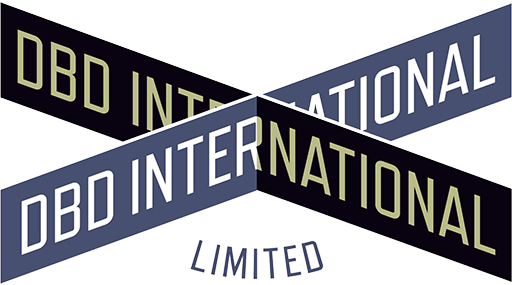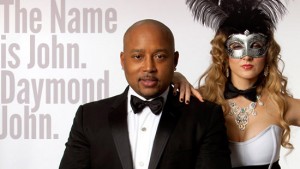 Daymond John is the founder, president and chief executive officer of FUBU, a clothing company with product lines that include casual wear, sports wear, a suit collection, eyewear, belts, and shoes.
Daymond John is the founder, president and chief executive officer of FUBU, a clothing company with product lines that include casual wear, sports wear, a suit collection, eyewear, belts, and shoes.
Daymond is the only Shark on Shark Tank who adds some much-needed mojo to the hit TV show. Cuban is smart but a wild card. Kevin I could write a book about but he’s already done that for me. That’s so Kevin of him to have already taken care of that. Robert is the quiet one amongst the bunch and I love this season’s newbie, Lori Greiner, QVC Queen, as the newest Shark Tank Investor.
Daymond is also the only one cool enough to respond directly to my Fast Company post, The Shark Tank Formula: 4 Steps To Owning A Room–And Making A Killing, tweeting “the best article ever written on Shark Tank.” Maybe it has something to do with the fact that he, like me, was born in Brooklyn but spent his childhood in the Queens (also like me).
So, I looked at Daymond and thought, this man deserves to be featured on this site. After I told him of the title above, Daymond was kind enough to provide some visuals and some insights into what makes him the Shark others aspire to be.
The Name Is John. Daymond John.
Daymond is a man about style and substance. He exhibits the kind of style that makes heads turn in a dinner party, not unlike the international lady’s man, secret agent James Bond. He also is man know for his astute attention to detail. He is all about brands and branding. Daymond knows what separates wannabe brands from killer brands that own their space.
When I asked about the importance of details as relates to a brand, he had this to say:
“One of the most important things for any brand is a strong attention to detail. It shows that you care enough about your work to make it as close to perfect as possible. If a brand doesn’t care to look over its product to make sure it’s the best product possible, there’s no reason consumers should become advocates or brand champions for it. And without brand champions telling everyone how much they love your product, you will have to spend a lot more marketing dollars.”
Leaving Nothing To Chance
Daymond knows the power of choice. To clarify, everything is a choice. Whether it’s to cheapen a brand’s quality or cut the wrong corners or to let management dictate brand attributes or to shortcut important homework.
Daymond also knows about persistence. Just look at a lump of coal and a diamond to understand. What’s the difference between the two? Whereas a piece of coal gave up somewhere along the line, a diamond never gave up and stuck with it.
As anyone in branding knows, you must leave as little to chance as possible. One of the reasons you must never delegate “brand innovation” to a committee (which is the only thing worse than chance) is because you know a committee will kill a brand faster than a roomful of politicians. (Note: A team of disciplined specialists is one thing and totally distinct from this comment about committees which are, more often than not, observers with opinions and not experts.)
With that said, here is Daymond’s take on leaving nothing to chance:
“There are so many factors when starting a business that are completely out of your hands. The worst thing, is that no matter what you do, they [the many factors] will always be out of your hands and simply up to chance. That’s why whenever I approach a project I take a deep look at every thing that I can control and make sure that I do everything in my power to make sure it’s the best work I can do. It makes no sense worrying about the aspects of your life that you have no control over, but you’ve got to make sure everything that you can control is fully taken advantage of.”
What They Say When You’re Not In The Room Matters. A Lot.
Jeff Bezos said something along the lines of “a brand is what people know you by when youʼre NOT in the room.” True enough. But it’s knowing how to use and interpret the information, a skill that a few executives have and many unfortunately lack. The important point is this: People listen to other people. Go figure.
Want to know Daymond’s take on this and how he uses this information?
“The best thing to happen to brand feedback was the emergence of social media. Nobody is personally going to come up to you and say they don’t like your brand. I even feel like some focus groups give you skewed feedback because the participants know what’s going on. But now you can follow the comments on Facebook and Twitter, and it’s truly amazing. People say very candid comments that aren’t for the sensitive brand managers out there. The good thing is your consumers are telling you exactly what they love or don’t like about your brand. That info is invaluable and allows you to adapt accordingly.”
How Does A Brand Convey
“You Don’t Want Me, You Need Me”?
The ongoing battle to “be cool” and “resonate” and “be authentic” are ongoing issues with any brand today. In a recent Fast Company post, I wrote on an up-and-coming Food Network Star, I addressed the issue of authenticity. In that article, you discover why this star (or brand) comes across as real as he is. Daymond’s take on this focuses on quality, love and trust:
“With there being so many products out there on the marketplace today, brands give consumers the confidence that they’re getting a quality product that they love and trust. Without those emotions, your brand becomes just another product.”
“There Are Two Kinds Of People:
Sharks. And Those Who Want To Be Sharks.”
I remember Daymond saying something very close to that on an episode of Shark Tank.
Fact is, I like Daymond. But he’s unique amongst the Sharks. Just because there’s blood in the water doesn’t mean he’ll go on full attack, unless it makes a ton of business sense and he can truly sink his teeth into the project successfully to make its brand attributes shine.
He’s a business man but he’s got heart. And a lot of soul. Which is how and why Daymond is a girl’s best friend.

Last word:
Shine On, You Crazy Diamond.

